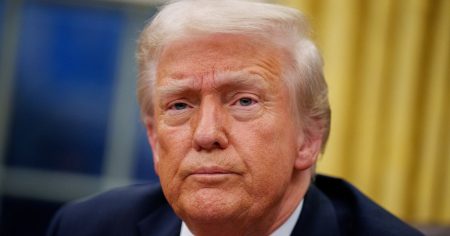Salman Rushdie Testifies Against Suspect in 2022 Stabbing Attack
On Tuesday, British-American author Salman Rushdie took the stand in a New York courtroom to testify against Hadi Matar, the man accused of stabbing him over a dozen times at a literary event in 2022. The attack left Rushdie blind in one eye and brought back into sharp focus the decades-long threats he has faced due to his work. Matar, who has pleaded not guilty to charges of attempted murder and assault, is also under scrutiny for alleged ties to the Iran-backed Lebanese group Hezbollah, which the U.S. designates as a terrorist organization.
The Attack and Its Aftermath
Rushdie’s testimony painted a harrowing picture of the day he was attacked. At a literary event in Chautauqua, New York, Matar allegedly approached him onstage and stabbed him repeatedly. “I was screaming because of the pain,” Rushdie recounted in court, his voice echoing the horror of that moment. The attack was so brutal that Rushdie lost vision in one eye and suffered severe injuries, including a damaged liver and a punctured lung. His testimony underscored the severity of the assault and the profound impact it has had on his life. For Rushdie, the attack was not just a physical assault but also a personal and professional trauma.
A Life of Controversy and Threats
The violent attack against Rushdie was not an isolated incident but part of a larger narrative of threats and intimidation that have shadowed his career for decades. The controversy began in 1988 with the publication of his novel, The Satanic Verses, which some religious leaders deemed blasphemous. The backlash was fierce, and a year after the book’s release, Iran’s former Supreme Leader, Ayatollah Khomeini, issued a fatwa—a religious edict—calling for Rushdie’s assassination. The fatwa forced Rushdie into hiding for years, under constant protection from authorities.
Despite the dangers, Rushdie has always been an outspoken advocate for free speech and literary freedom. His unflinching commitment to his art has made him both a celebrated figure and a target for those who seek to silence him. The 2022 attack was a grim reminder of the enduring risks he faces, even decades after the fatwa was issued. For many, Rushdie’s story is a testament to the power of words—and the lengths to which some will go to suppress them.
The Suspect and His Ties to Hezbollah
Hadi Matar, the 25-year-old man accused of attacking Rushdie, faces serious charges, including attempted murder and assault. He has pleaded not guilty, but prosecutors are also investigating his alleged ties to Hezbollah, a group supported by Iran and designated as a terrorist organization by the U.S. If proven, these connections could deepen the case against Matar and raise questions about whether the attack was inspired by the same ideological motivations that led to the fatwa against Rushdie.
According to reporting by Semafor’s Jay Solomon, investigators are looking into whether Matar’s actions were influenced by his alleged support for Hezbollah. This angle adds a layer of complexity to the case, suggesting that the attack may have been more than just the act of an individual—it could have been part of a broader campaign of intimidation and violence aimed at silencing Rushdie and others like him.
The Broader Implications of the Attack
The attack on Salman Rushdie has sparked widespread concern about the state of free expression and the safety of writers and artists who challenge authority or question religious dogma. Rushdie’s case is a stark reminder of the dangers faced by intellectuals and creatives in an increasingly polarized world. His unwavering commitment to his craft has made him a symbol of resilience and defiance, but it has also made him a target for those who seek to suppress dissent.
For many, the attack on Rushdie is not just an attack on one man—it is an attack on the very principles of free speech and artistic freedom. The fact that he was assaulted in the United States, a country that prides itself on its commitment to these values, has left many questioning whether such attacks can happen anywhere, even in places where freedom of expression is supposedly protected.
The Trial’s Conclusion and the Road Ahead
As the trial continues, the world watches to see how justice will be served in this case. For Rushdie, the road to recovery has been long and arduous, both physically and emotionally. His testimony in court was a courageous step toward closure, but the scars of the attack will linger. The trial also serves as a reminder of the enduring challenges faced by writers and thinkers who dare to challenge the status quo.
In the end, the attack on Salman Rushdie is a sobering reminder of the power of words—and the lengths to which some will go to silence them. As Rushdie himself has said, the right to expression is a fundamental human right, and it is worth fighting for, even in the face of danger. His story is not just one of tragedy but also of resilience, and it continues to inspire those who believe in the transformative power of literature and ideas.









